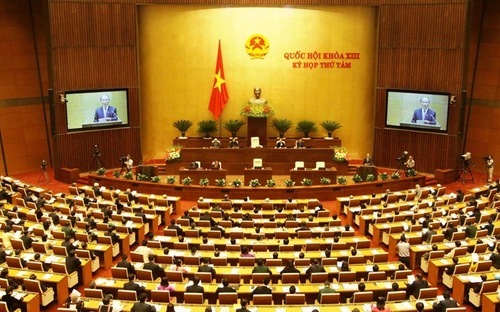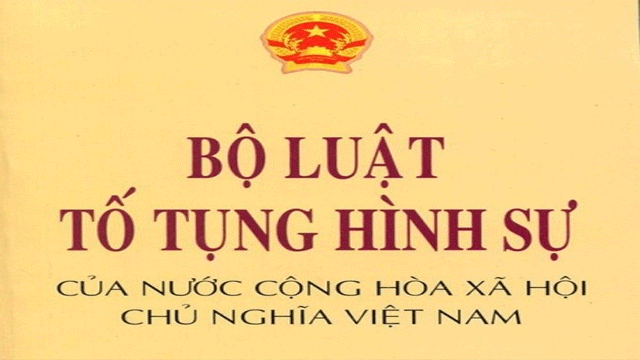As a person directly involved in the execution of criminal judgments, during the implementation of my duties, I have encountered several specific difficulties and obstacles as follows:
1. For the execution of a suspended sentence
In the case where the convicted person is not present at the locality of residence (permanent residence) as determined by the court's judgment. When the Court issues a decision to execute the sentence and transfers the judgment to the District-level Criminal Execution Agency for execution but the criminal execution agency cannot summon the convicted person to carry out necessary procedures as prescribed in Clause 1 and Clause 2, Article 62 of the Law on Criminal Execution, because the convicted person is not present at the locality, and the local authorities do not know where the convicted person has gone or what they are doing.
This is one of the issues causing confusion for functional agencies during the current execution of the Law on Criminal Execution, leading to legally effective court judgments not being executed in practice, compromising the legal process, and diminishing the effective governance of the State through law.
2. For cases of postponement or temporary suspension of prison sentences
- In cases where, after the period of postponement of the prison sentence has ended, according to the provisions of Clause 2, Article 261 of the Criminal Procedure Code (BLTTHS): "2. No later than seven days before the end of the period of postponement of the prison sentence, the Chief Justice of the Court that granted the postponement must issue the execution decision and immediately send the execution decision along with the legally effective imprisonment judgment to the equivalent-level Police agency and the convicted person before the end of the period of postponement of the prison sentence."
However, Clause 6, Article 24 of the Law on Criminal Execution stipulates that: "No later than 07 days before the end of the postponement period, the Chief Justice of the Court that decided to postpone the prison sentence must notify in writing and immediately send that notification to the person executing the sentence, the agency specified in Clause 3, Article 23 of this Law."
Thus, between the Criminal Procedure Code (BLTTHS) and the Law on Criminal Execution (THAHS), there are different provisions on this content, leading to the Court's confusion about whether to issue a notification or an execution decision. This content urgently requires specific guidance from central agencies.
- In cases where, during the postponement or temporary suspension period, the convicted person commits a legal violation, according to the provision at Clause 2, Article 263 of the Criminal Procedure Code (BLTTHS): "If during the postponement or temporary suspension period, the convicted person commits a serious legal violation or there are grounds to believe that the person will flee, the Chief Justice of the Court that granted the postponement or temporary suspension shall annul that decision and issue an execution decision to send them to serve the prison sentence" is inconsistent with the provisions of the Law on Criminal Execution (THAHS). Specifically, in these cases, the district-level Criminal Execution Agency or the military zone-level Criminal Execution Agency requests the Chief Justice of the Court that issued the postponement decision to annul the postponement decision (Clause 4, Article 24 of the Law on Criminal Execution) or to issue a decision to terminate the temporary suspension (Clause 4, Article 32 of the Law on Criminal Execution), without stipulating that the Court that issued the postponement or temporary suspension decision should issue an execution decision to send them to serve the prison sentence.
Some recommendations and proposals
- It is proposed to more strictly define the conditions for applying preventive measures such as prohibition from leaving the place of residence, bail, and depositing money or valuables for assurance in the Criminal Procedure Code (BLTTHS). At the same time, there should be specific binding regulations to enhance the responsibility of local authorities (communal level) in managing and supervising individuals subject to preventive measures at their residence.
This needs to be addressed to resolve the fact that in reality, many individuals subject to the above preventive measures, while on bail, have fled the locality or moved to different localities to work and live without informing and completing necessary legal procedures. Therefore, when the Court issues the execution decision, the court's judgments and decisions cannot be executed, leading the Criminal Execution Agency to issue a wanted notice and organize the apprehension (for cases of imprisonment sentences) or cannot be executed (in cases of suspended sentences, non-custodial reeducation), causing loss of public trust and wasting the State's time and resources.
- It is proposed that the Council of Judges of the Supreme People's Court promptly issue a resolution guiding the application of the Law on Criminal Execution and issue the templates, forms, and execution decisions to be uniformly applied nationwide.
Source: Nguyen Manh Cuong - Official of the People's Court of Ha Giang Province
 Article table of contents
Article table of contents









